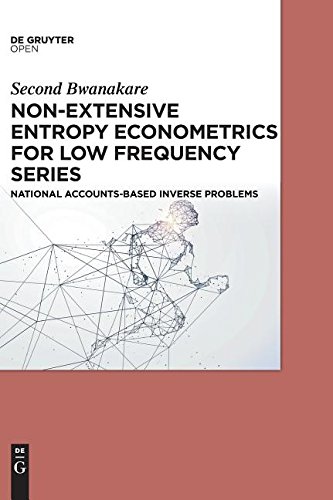
Non-Extensive Entropy Econometrics for Low Frequency Series
by Second Bwanakare
Publisher: De Gruyter Open 2017
ISBN-13: 9783110550443
Number of pages: 218
Description:
Non-extensive Entropy Econometrics for Low Frequency Series provides a new and robust power-law-based, non-extensive entropy econometrics approach to the economic modelling of ill-behaved inverse problems. Particular attention is paid to national account-based general equilibrium models known for their relative complexity.
Download or read it online for free here:
Download link
(multiple PDF files)
Similar books
 Financial Econometrics
Financial Econometricsby Roman Kozhan - BookBoon
This is a step-by-step guide to financial econometrics using EViews 6.0 statistical package. It contains brief overviews of econometric concepts, models and data analysis techniques followed by examples of how they can be implemented in EViews.
(15990 views)
 Statistical Inference in Dynamic Economic Models
Statistical Inference in Dynamic Economic Modelsby Tjalling C. Koopmans - John Wiley & Sons
Quantitative economic study has a threefold basis: it is necessary to formulate economic hypotheses, to collect appropriate data, and to confront hypotheses with data. The latter task, statistical inference in economics, is discussed in this book.
(9993 views)
 Urban Travel Demand: A Behavioral Analysis
Urban Travel Demand: A Behavioral Analysisby Tom Domencich, Daniel L. McFadden - North-Holland Publishing
'Urban Travel Demand' develops a theory of demand for populations of individual economic consumers which we believe is a logical and natural generalization of traditional theory to encompass choice among discrete alternatives.
(14860 views)
 Lectures in Quantitative Economics
Lectures in Quantitative Economicsby Thomas J. Sargent, John Stachurski - QuantEcon
This website presents a series of lectures on quantitative economic modeling. From the table of contents: Data and Empirics; Tools and Techniques; Dynamic Programming; Multiple Agent Models; Time Series Models; Dynamic Programming Squared.
(7644 views)